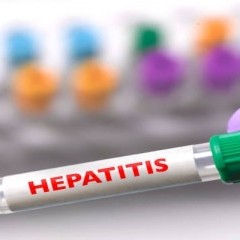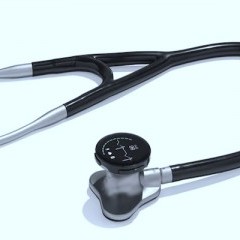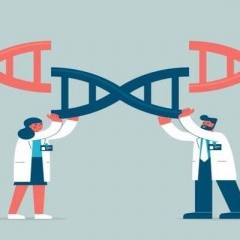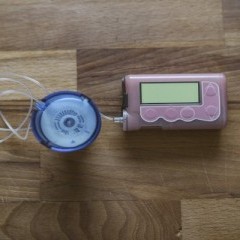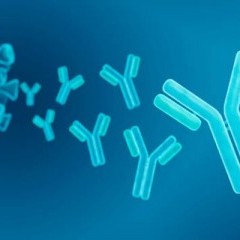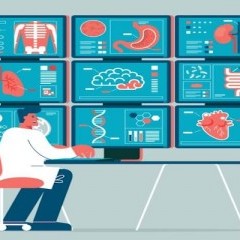Understanding gene therapy coverage for sickle cell disease
LifeSciencesIntelligence On December 8, 2023, the United States FDA made a significant regulatory decision, approving the first gene therapies for sickle cell disease (SCD) patients: Casgevy and Lyfgenia. The simultaneous approval of both drugs for the condition provided the opportunity to understand if there would be a preference for one of the drugs over the other. LifeSciencesIntelligence sat down with Erin...
More Features
CDRH reports highlight progress in medical device safety, innovation
On April 17, 2024, the Center for Devices and Radiological Health (CDRH), part of the United States FDA, released two companion reports that comprehensively overview the organization’s unwavering dedication to advancing the core...
Exploring strategies to mitigate physician burnout
The onset and continuous impacts of the COVID-19 pandemic were trying times for healthcare systems globally. Physicians and healthcare professionals were burdened with excess workloads, increased patient risks, and additional challenges,...
Improving mammography utilization to cut breast cancer mortality
A recent report from the Centers for Disease Control and Prevention (CDC) highlights the association between mammography utilization and various social determinants of health (SDOH) and health-related social needs among women in the United...
Exploring 10 ethical considerations in genome editing
Genome editing has become a vital healthcare tool for modifying genetic information in living organisms. With a high and proven potential for healthcare innovation, genome editing has garnered attention from researchers, innovators, and...
Exploring 3 common types of viral hepatitis: hepatitis A, B, C
New York University Langone Health defines hepatitis as an inflammation of the liver often caused by a viral infection, commonly hepatitis A, B, and C viruses. A recent report from the World Health Organization (WHO) reported that there are...
Exploring digital stethoscope technology for improved diagnostics
By combining advanced digital capabilities with traditional auscultation techniques, advanced digital stethoscope technology has transformed how healthcare professionals detect and monitor cardiopulmonary diseases. In an...
Exploring RNA-based therapeutics beyond mRNA vaccines
RNA therapeutics have emerged as a critical tool for the healthcare industry. In recent years, mRNA vaccines have been one of the most notable RNA therapeutics, which played a crucial role in curbing the effects of the COVID-19 pandemic....
Assessing the impacts of noncontinuous digital diabetes solutions
In a recent health technology assessment conducted by the Peterson Health Technology Institute (PHTI), the clinical and economic impact of noncontinuous digital diabetes management solutions for adults with type 2 diabetes (T2D) has been...
Applying pharmacometabolomic data for personalized medicine
As healthcare evolves and science advances, the industry has increasingly focused on personalized medicine as an alternative to blanket, one-size-fits-all treatments. This approach is an attempt to address ongoing concerns around treatment...
Understanding litigation against drug, medical device manufactures
Legal challenges surrounding medical devices and pharmaceutical drugs have become increasingly prominent in the healthcare industry. In an episode of Healthcare Strategies, Janpaul Portal, Esq, Managing Director of pharmaceutical and...
FDA-approved insulin pumps used for insulin pump therapy
Insulin pump therapy, also known as continuous subcutaneous insulin infusion (CSII), has emerged as a significant advancement in diabetes technology over the last 50 years. Although commercial insulin pumps were introduced in the 1970s,...
How can gene therapies address inherited blindness?
According to Boston Children’s Hospital, inherited retinal disorders are one primary cause of genetic blindness as they damage the retina and impair vision. While these conditions are rare, their impacts on vision can vary from mildly...
Enhancing diabetes management with innovative insulin pump technology
In diabetes management, insulin pumps represent transformative technological breakthroughs that provide individuals with a vital pathway to improved health and enhanced quality of life. These portable medical devices have revolutionized...
Unraveling confusing AI regulations, their impact on life sciences
Only 9% of life sciences professionals believe they know and understand AI regulations well, revealed the Pistoia Alliance, a non-profit that engages major pharmaceutical companies in pre-competitive collaboration, in recently published...
Leveraging antibody profiling for advanced healthcare insights
Omics data, including genomics, metabolomics, proteomics, and more, play a critical role in the healthcare industry. With this data, providers and researchers can make treatment decisions, direct research to understand diseases, and guide...
Using Next-Generation Antibiotics to Combat Antimicrobial Resistance
The rise of antimicrobial resistance (AMR) poses a significant threat to global health and demands urgent attention. Antibiotics, once hailed as miracle drugs, are losing their effectiveness due to the emergence of resistant bacterial...
Automating Blood Glucose Monitoring Through New Technology
Patients actively managing their diabetes — and their providers — understand the critical importance of regular blood sugar monitoring for disease management. Blood sugar checks help patients and providers assess whether their...
Exploring the Surge of Early-Onset Stomach Cancer
In recent years, a concerning trend has emerged in healthcare circles: a significant rise in the incidence of stomach cancer among individuals under 50. This demographic shift, characterized by a surge in gastrointestinal...
Exploring 5 Healthcare Imaging Techniques: Uses and Limitations
Advancements in healthcare imaging technologies and techniques have revolutionized diagnostics and disease monitoring. As these tools continue to develop and evolve, healthcare providers can leverage them for early disease diagnosis,...






